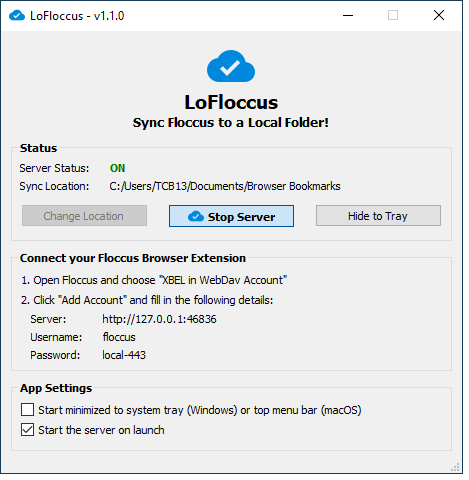@saqimtiaz I too are keen for a similar solution ultimately for professional and business reasons.
I hope the following thoughts are of some value as I have spent a lot of time on this subject.
One step forward may be;
- For a locally accessible wiki the local host address range 127.x.x.x offers around 16 million addresses one could argue a random address could be an auto-configuration option.
- Interestingly this larger range seems rarely used.
What are the other key server parameters we need to deal with? They are influenced by the trust environment.
- Configuration handling - JED’s Bob imports and allows the changing of configuration settings on the server, in its case Node. Something similar could be used to handle a YAML file.
- If our WedDav served wiki can save and read other files (not just itself) in its local directory,
- sophisticated Tiddlywiki based GUI’s can be developed in tiddlywiki itself
- The locks/serial editing user control and passwords features added
- File uploads plugin or a version of it can be used.
- I am a strong believer we should design with the consideration of the different “trust” environments. Eg:
- for oneself to access ones wikis
- On the local machine only eg local host
- This should permit the option of more interaction with the local machine (eg; like Timimi Webextensions)
- from another device of mine on the LAN eg my Mobile
- Only needs listen on 0.0.0.0 and it will acquire the local ip Addresses
- We should however allow a static address to be used.
- On the local machine only eg local host
- to share with others on the LAN
- from friends, family team members on the LAN
- to host somewhere “always on” on the LAN not my local desktop
- One opportunity here is also those with a VPN into the LAN for individuals or team members for remote access.
- Ultimately on the Internet (very low trust)
- but lets not let this negatively impact the other higher trust environments.
- for oneself to access ones wikis
A key technology for multiple users is the provision of a lock, check in or checkout facility for single files wikis to allow serial editing, ie multi-user over time. I have done a lot of work on this already, but believe it should be included in a WebDav solution.
If a solution can be preloaded with a specific wiki, but containing a configuration GUI, people can obtain a for purpose “application”, minimal setup requirements with access to a “backstage” where they may install additional wikis, access backups etc… via the same server/IP address but different paths.

